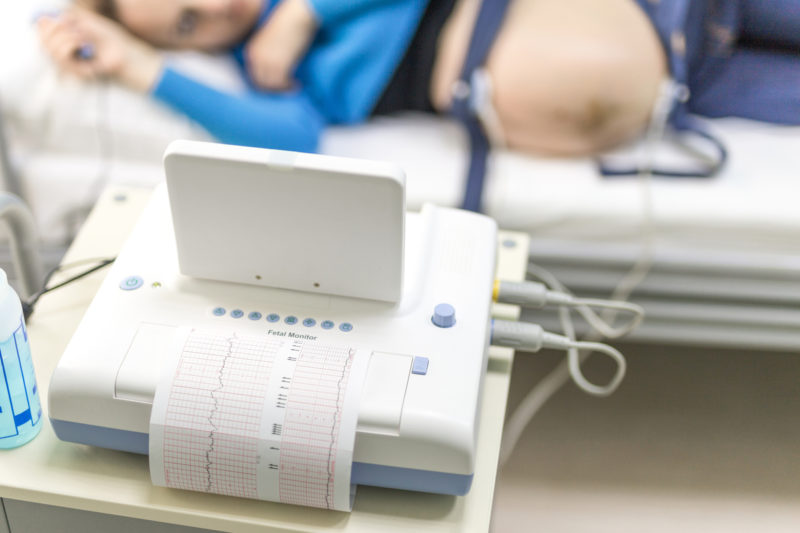New York Lawmakers: No Money to Address Maternal Mortality
Sixty-seven percent of people who suffer maternal death are on Medicaid, while Black women die due to pregnancy at a rate almost four times higher than their white counterparts.

New York lawmakers last weekend failed to secure funding for a statewide review board that could help the state improve its high maternal mortality rate.
Despite having some of most world’s most advanced medical facilities, New York ranks 30th out of 50 states for the number of deaths related to pregnancy, with Black women dying at a rate almost four times higher than their white counterparts.
Advocates had hoped legislators would establish and fund a statewide maternal mortality review board to help reduce the high number of pregnancy–related deaths, especially among people of color.
“This is a problem that is occurring way too often, disproportionately affecting women of color,” said Robin Chappelle Golston, president and CEO of Planned Parenthood Empire State Acts. “Black women are almost four times as likely to die from a maternal death than white women, and over 67 percent of the women who die from maternal death are on Medicaid. So there is definitely a connection between access to healthcare disparities, poverty, and also race.”
About 35 states and four cities—Baltimore, New York, Philadelphia, and Washington, D.C.—have or are developing committees to examine maternal deaths, according to ProPublica. While New York City has had a review board since 2010, this has been the first concerted effort to push for a statewide board, similar to ones already in place in California and Georgia.
Proposed in Democratic Gov. Andrew Cuomo’s fiscal year 2019 executive budget, the board would have been made up of “a diverse group of clinical experts who could review each of these maternal deaths and really make strong recommendations to improve those numbers statewide,” Chappelle Golston said.
Supported by Democratic lawmakers and the Independent Democratic Conference—a group of eight Democratic state legislators aligned with Republicans—as part of their reproductive health agenda, the board was not funded in the final budget.
The Maternal Mortality Review Board would have partnered with the American College of Obstetricians and Gynecologists (ACOG) to review every maternal death in the state. The legislation builds on the work of ACOG District II’s Safe Motherhood Initiative to prevent maternal mortality and morbidity.
Sascha James-Conterelli, president of the New York State Association of Licensed Midwives, worked on the Safe Motherhood Initiative and has been a midwife in New York for more than 17 years. She told Rewire.News that maternal mortality has not improved much in the state over the last ten to 15 years.
“In New York City, the maternal mortality rate has actually increased and the maternal mortality of African American women are the highest regardless of socio-economic status and education. So what information can we find out related to these women to improve the health of future generations of women, to decrease the numbers and keep it at a low?” she said.
The board would have allowed experts to review confidential patient information with the goal of gaining a broader understanding of maternal healthcare in the state. They would use that information to find patterns and draw conclusions to improve processes in maternal and child health.
“It’s critical for New York City and New York state because of our dismal rates,” James-Conterelli said. “Even though we have done many things and made advances in research and technology in the past 10 years, we are not impacting maternal health.”
While the enacted budget did not establish the review board, it did support other reproductive health programs like funding the Safe Motherhood Initiative and requiring the state board of medicine to include experts in women’s health.
Advocates told Rewire.News that this progress will help them continue to fight for the establishment of a review board in the remaining legislative session.
Data shows a 44 percent decrease in the worldwide maternal mortality rate over the past 25 years, but the United States is one of 13 countries that saw maternal mortality rates rise during this period.
About 700 people die of pregnancy-related causes each year in the United States, and 65,000 women have serious health complications, according to a 2016 ACOG report.
A Centers for Disease Control review of nine state and local maternal mortality review committees nationwide found that these review boards are “best positioned to comprehensively assess maternal deaths and identify opportunities for prevention.” More than 60 percent of pregnancy-related deaths were preventable, the report found—and contributing factors include patients’ lack of knowledge on when seek care and providers’ misdiagnosis and lack of coordination.
